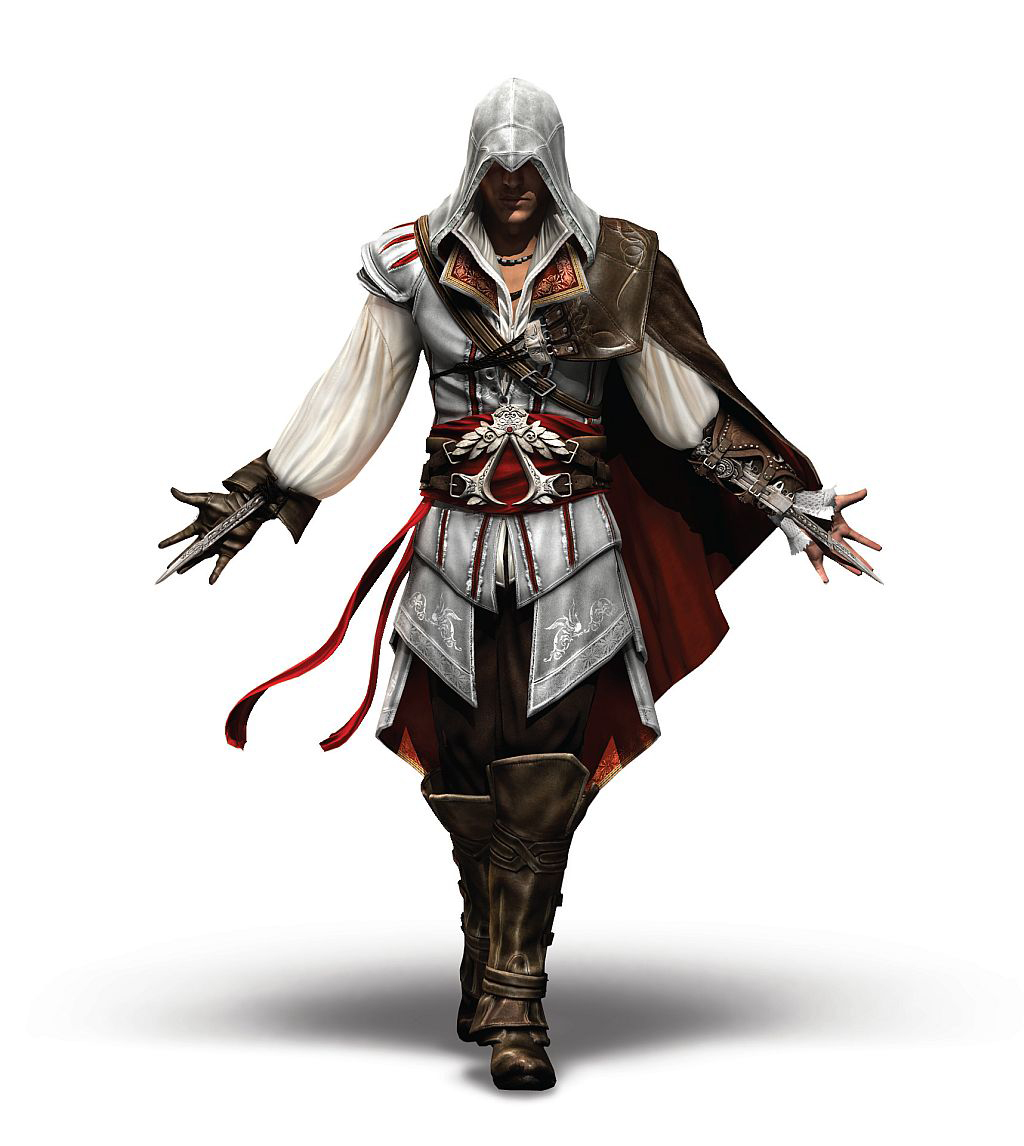The shooters that inspired a gun-toting generation of games pros…If it moves kill it. Sound advice, that. You’re about to delve into a series of dark, hostile worlds, where foes are numerous and friends are few. Best pack lots of health packs and… a fully loaded Fat Man Nuke Launcher!
The humble shooter has come a along way since the Nazi-killing days of Wolfenstein 3D. But the core gameplay remains pleasingly untouched: aim your gun and pull the trigger. Blast a hideous, mutated space-freak in the face and delight as its lifeless body spins gracefully in zero-g, pumping out globules of claret from its severed limbs. As glib as it sounds, shooting stuff is fun.
So then, what exactly makes the perfect shooter? We’ve tapped up some of the best writers and biggest names in the industry and asked them exactly that. Here’s what they said…
Resident Evil 4
“When it comes to third person shooters, Resi 4 reigns supreme. Not only is the gunplay zen-balanced and the armoury plentiful, but the intense horror aspects and variety ensures there are thrills around every corner. There’s still no finer feeling than lining up that red-dot sight of the handcannon and popping some skulls. Lovely stuff.”
Nathan Irvine, associate editor, GamesRadar
Gears of War
“The only shooter that makes me feel like a big walking tank made from a slab of impossible pantomime muscle and that arms me with a chainsaw and puts boots on my feet that can stomp heads into worm mush. That’s why I love it.”
Matt Cundy, UK editor, GamesRadar
Battlefield: Bad Company 2
“Being a console man, this is the only proper taste I’ve had of Battlefield’s unique brand of online, head-popping genius. But I’m hooked. Why? Unlike COD and its many clones, Battlefield asks you to work as part of a team – and rewards you for it. The classes are so well balanced and thought out, the game modes simple and effective, and it’s the team that pulls together and thinks before they shoot that inevitably wins. What’s not to like?”
Andy Hartup, associate editor, PSM3
Metro 2033
“Not the most technically refined FPS but I would consider it one of the bleakest and most atmospheric I’ve played for years. It portrayed the feeling of being a post-apocalyptic survivalist much better than Fallout and was filled with neat touches like your hand-held dynamo torch and oh-so-fragile gas mask. An interesting individual and massively overlooked title.”
Shaun Curnow, reviews editor, GamesMaster
Bioshock
“The prefect blending of atmosphere, storytelling and shooting wrapped up with a story twist that would make Hitchcock proud. Would you kindly go play it again?”
Cliff Bleszinski, design director, Epic Games
Doom
“I was a Marine going against the legions of Hell and it invented Deatmatch and birthed a genre.”
Cliff Bleszinski, design director, Epic Games (again)
Half-Life 2
“Still unbeaten in many ways for its pacing, variety and the seriousness with which it took its own world. Also: GRAVITY GUN!”
Cliff Bleszinski, design director, Epic Games (can’t make up his mind)
GoldenEye/Halo
“For showing the world that console shooters can be fun, accessible, and most importantly, highly controllable with analog sticks.”
Cliff Bleszinski, design director, Epic Games (will he ever shut up?)
Doom (vote 2)
“In terms of sheer number of hours invested in playing that game. It was also life-changing for me. Doom really converted me from one kind if gamer into an action gamer. I was more of a role-playing, adventure gamer. Wolfenstein was the catalyst, but Doom pushed it over the top. Doom changed everything in my world, and you can see my entire career’s been affected by that.”
Randy Pitchford, CEO and president of Gearbox Software
Prefect Dark
“I love its sheer malice. Sedating guards with a tranquiliser and then putting them to sleep with a lethal injection remains gaming’s cruellest takedown. Though unleashing the laptop gun on a platoon of brainless ‘meat sims’ comes close. An FPS lives and dies by its arsenal. Perfect Dark’s is the best.”
Mattew Castle, reviews editor, Ngamer
Duke Nukem 3D
“The best implementation of co-op, excellent action, scary like Doom, tons of monsters… and I love Duke’s character!”
John Romero, Wolfenstein impresario and co-founder of id Software
Quake 3 Arena
“It’s such a pure activity kind of game – more of a sport than a movie. For any player looking to test their skill, I think Quake 3 is the best there ever was.”
John Carmack, Daddy of Doom and co-founder of id Software
Far Cry
“Not the castrated console versions, mind. Played on a high end PC, Crytek’s sandbox vision swept me away on a tropical tide. Visually unparalleled, the sense of creative emancipation when deciding how to approach and accomplish objectives blew my mind, Crysis 2 may be mere months old, but this remains Crytek’s opus. And I haven’t even mentioned the Hang Glider!”
Rob Taylor, writer, GamesMaster
GoldenEye (vote 2)
“In its prime, nothing could touch it. Rare understood Bond, stealth and shooting, and they married it all to a sublime multiplayer, ahead of its time and still, in many ways, unmatched.”
Tim Weaver, editor, Xbox World 360
Quake 3 Arena (vote 2)
“Twelve years on, nobody has managed to nail online shooting quit as effectively as id. Q3A is multiplayer distilled into absolute purity, nothing but breathless speed and uniquely murderous weapons. Even today five minutes’ play leaves me wired and twitchy – it’s the gaming equivalent of a gallon of espresso.”
Jon Hicks, editor, Official Xbox 360



















